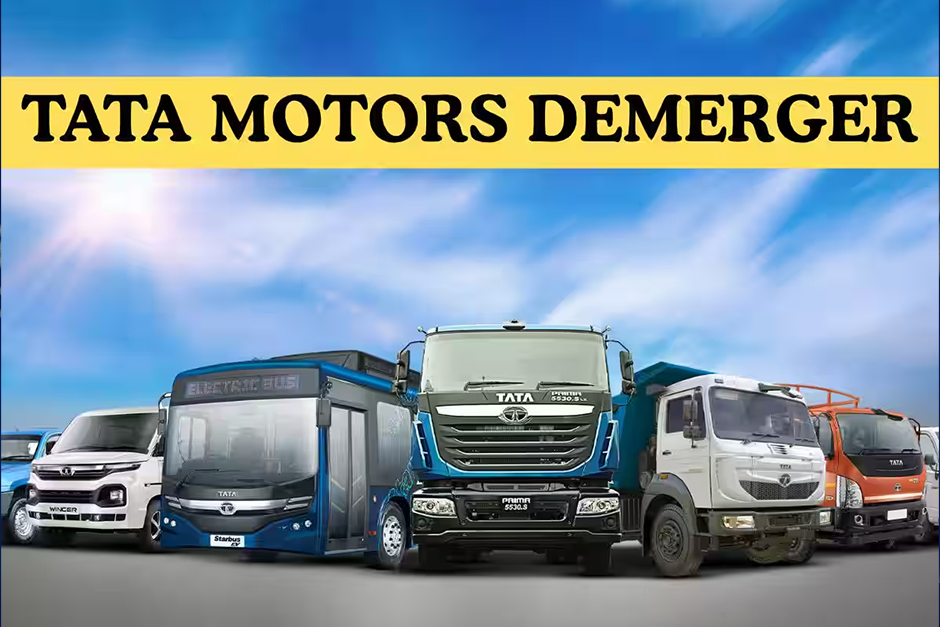The Indian automotive landscape is set to witness a significant event tomorrow as Tata Motors Commercial Vehicles (TML CV) prepares for its independent listing on the bourses. This marks a crucial step following the strategic demerger of Tata Motors Limited into two distinct entities: Tata Motors Commercial Vehicles and Tata Motors Passenger Vehicles (which will also include electric vehicles).
For existing shareholders of Tata Motors and prospective investors alike, this unbundling presents both opportunities and questions. What exactly should one expect as the dedicated commercial vehicle arm steps into the spotlight as a standalone listed entity? TrendLyric.com delves into the implications and factors that will likely shape its journey.
Understanding the Demerger and the New Entity
The decision to demerge was primarily driven by the Tata Motors board’s vision to unlock greater value for shareholders by creating focused business units. Tata Motors has historically been a conglomerate of diverse auto segments, and the demerger aims to allow each business to pursue its own strategies, allocate capital more efficiently, and enhance agility in a rapidly evolving market.
TML CV emerges as a pure-play commercial vehicle powerhouse. It inherits Tata Motors’ formidable legacy and leadership in India’s commercial vehicle segment, spanning trucks, buses, light commercial vehicles (LCVs), and medium & heavy commercial vehicles (M&HCVs). This segment is characterized by its close ties to economic growth, infrastructure development, and industrial activity. As a standalone entity, TML CV will have dedicated management focus on its core business, which includes product development, market expansion, and addressing the specific challenges and opportunities within the CV ecosystem.
“The demerger of Tata Motors’ commercial vehicle business is a classic move to create shareholder value by giving each segment the freedom to chart its own course,” notes a leading industry analyst. “It allows investors to directly participate in the growth story of India’s commercial vehicle sector without the complexities of a diversified automotive conglomerate.” This perspective highlights the strategic intent behind the separation and its potential appeal to specialized investors.
Key Factors Influencing Investor Sentiment
Investors will be scrutinizing several factors as TML CV begins its independent trading journey:
Market Leadership and Moat
TML CV is not just another player; it’s a dominant force in the Indian commercial vehicle market, commanding a significant market share. Its extensive pan-India dealer network, robust service infrastructure, and established brand trust provide a substantial competitive moat. The ability to leverage this deep-rooted presence for market penetration and customer retention will be key.
Cyclical Nature of the CV Industry
The commercial vehicle sector is inherently cyclical, heavily influenced by macroeconomic conditions, freight demand, and government spending on infrastructure. Investors will need to assess TML CV’s resilience to economic downturns and its ability to capitalize on upswings. The current outlook for India, with its focus on infrastructure development (like the National Infrastructure Pipeline) and manufacturing, bodes well for sustained demand in the medium term.
Electric Vehicle Transition
The global shift towards electric mobility is not confined to passenger vehicles. Commercial vehicles are also embracing electrification, particularly in urban logistics and public transport. TML CV has already made strides in electric buses and is actively developing electric truck solutions. Its strategy and execution in this evolving segment will be crucial for long-term growth and maintaining a competitive edge against new entrants and traditional rivals.
Operational Efficiency and Profitability
As a standalone entity, TML CV’s ability to drive operational efficiencies, manage input costs (like steel and other commodities), and enhance profitability metrics will be under sharp focus. Its financial performance, specifically margins and return on capital employed, will be key determinants of its valuation and investor confidence.
What Should Investors Expect Post-Listing?
Initially, investors might witness some degree of price discovery and volatility as the market fully assimilates the new entity and its valuation relative to peers like Ashok Leyland and Eicher Motors (VE Commercial Vehicles). Existing Tata Motors shareholders, who will receive shares of TML CV, might also engage in rebalancing their portfolios, leading to initial movements.
For long-term investors, the focus should shift to the underlying fundamentals. TML CV offers a direct exposure to India’s commercial vehicle growth story, underpinned by strong domestic consumption, e-commerce boom, and significant infrastructure push. Its leadership in various segments, coupled with efforts in new product development and electrification, positions it strongly for future growth. However, challenges such as intense competition, commodity price fluctuations, and evolving regulatory landscapes will require careful navigation.
Investors are advised to conduct thorough due diligence, analyze the company’s financial health, management commentary, and future growth strategies before making investment decisions. The listing of TML CV is not just about a new stock; it’s about a dedicated commercial vehicle giant embarking on an independent journey, offering a unique proposition in the Indian auto sector.




